Travellers from all over the world are drawn to Australia by its diverse landscapes and dynamic culture. However, in addition to your travel itinerary and schedule, you should also consider other factors as you prepare for your thrilling voyage to this sun-kissed continent. Australia’s rather strict security rules may surprise unprepared visitors. In this guide, we will take you on a tour of the fascinating Australian customs and traditions, as well as delve into the intriguing world of what you can and cannot bring to this amazing nation.
Banned Items – What Not To Bring To Australia
1. Automatic Knives
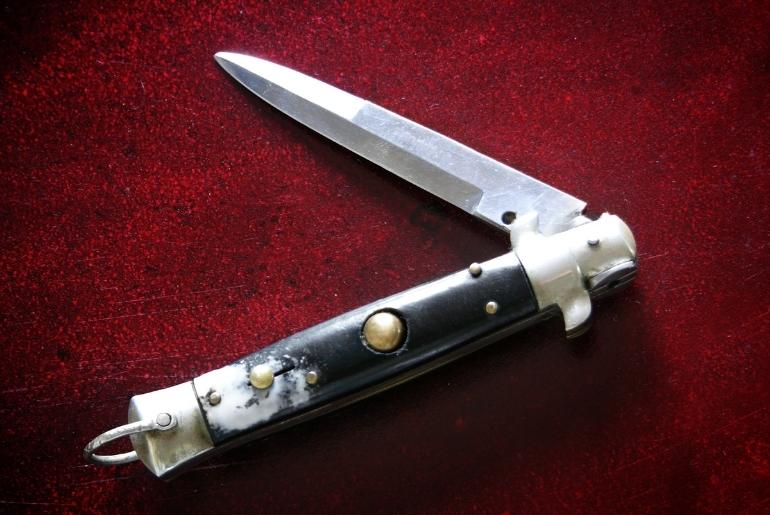
Australia prohibits automatic knives like flick knives and switchblades. Bringing or attempting to import these knives or their parts is not allowed.
Penalties: seizure of goods, prosecution, and significant fines.
2. Balisong/Butterfly Knives
Similar to automatic knives, Balisong/butterfly knives and related parts are banned from import.
Penalties: confiscation of goods, prosecution, and large fines.
3. Blowguns
Blowpipes or blowguns are not permitted in Australia, even if sold as souvenirs.
Penalties: confiscation of goods, prosecution, and large fines.
4. Cats And Dogs
Strict conditions apply to importing cats and dogs into Australia. Specifically dangerous breeds of dogs like the dogo Argentino, fila Brasileiro, Japanese tosa, American pit bull terrier or pit bull terrier, and Perro de Presa Canario or Presa Canario are not allowed in the country.
5. Concealed Blades
Items like pen knives or umbrella swords with concealed blades are not allowed.
Penalties: confiscation of goods, prosecution, and significant fines.
6. Daggers
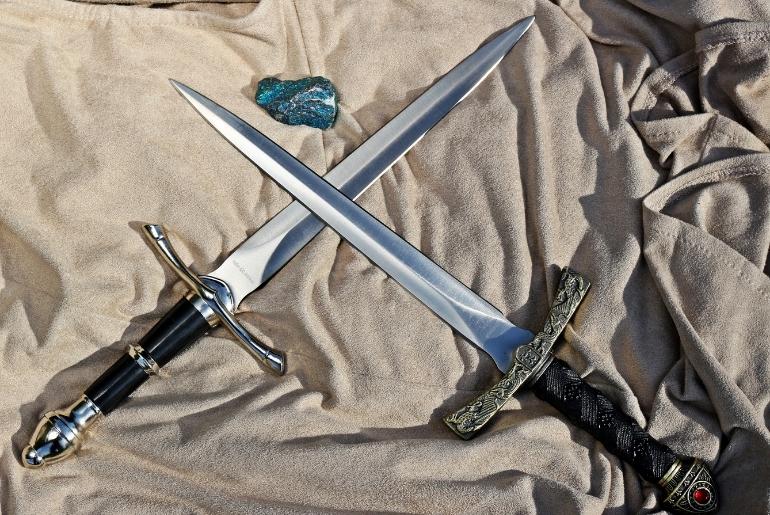
Concealable double-edged knives designed for stabbing, including push knives and spikes, are prohibited.
Penalties: confiscation of goods, prosecution, and significant fines.
7. Electric Shock Devices
Hand-held electric shock devices, including Tasers and disguised items, are not allowed.
Exceptions: limited allowances for specific purposes, like police or filmmaking.
8. Extendable Batons
Importing extendable batons requires prior permission, typically granted to the police or licenced security.
Penalties: goods seized, prosecution, and huge fines
9. Fake Designer Goods
Counterfeit items, such as fake clothing and accessories, are not allowed in Australia.
Penalties: seizure of goods, prosecution, and significant fines.
10. Firearms

It is strictly forbidden to import any kind of firearm, including rifles, handguns, and paintball guns. You must obtain authorization from the state or territory police or the Commonwealth Attorney-General’s Office. An appropriate firearms license is required.
Penalties: loss of goods, fines, and potential prosecution.
11. Fireworks
Fireworks are considered dangerous goods and are prohibited to carry in aircraft.
12. Food From Plane Or Ship
You cannot bring food from a plane or ship into Australia.
13. Illegal Pornography
Illegal content includes some explicit material and child abuse material.
Penalties: Up to 10 years imprisonment for child abuse material; fines for other illegal content.
14. Imitation Firearms
State or territory police must give their approval before importing imitation firearms.
Penalties: loss of goods, fines, and potential prosecution.
15. Knuckle-Dusters
It is prohibited to use knuckle dusters, even those that are disguised.
Exceptions: limited allowances for specific purposes, like filmmaking.
16. Live Plants

A current import permit from the Department of Agriculture, Fisheries, and Forestry is necessary for the majority of live plants.
17. Nunchakus
Nunchakus and other weapons with handles connected by rope or chain are prohibited.
Exceptions: Possible approval with state or territory police involvement.
18. Paintball Firearms
Authorities must give their approval before importing paintball markers.
Penalties: loss of goods, fines, and potential prosecution.
19. Pepper Spray
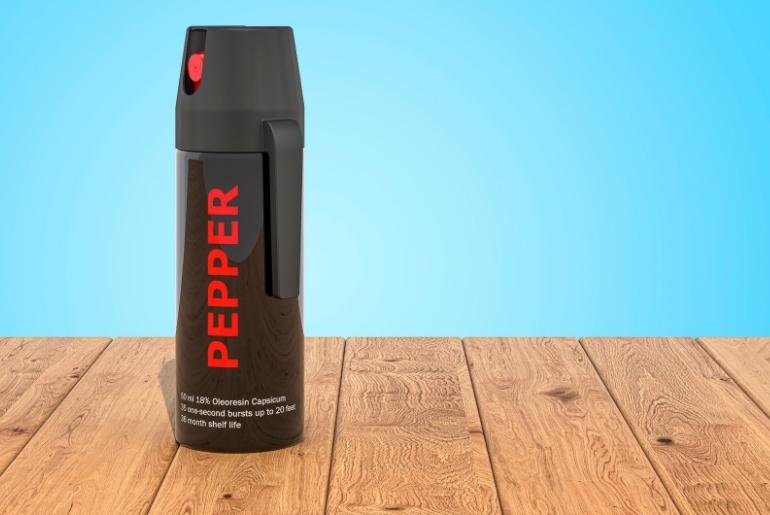
It is prohibited to import pepper spray, except for law enforcement and government agencies.
20. Pet Birds, Horses, Rabbits, Reproductive Material, Laboratory Animals, Aquarium Fish
If you want to import these, there are specific requirements and permissions to acquire them.
21. Pirated DVDs
It is against the law to bring pirated movies or TV shows to Australia.
Penalties: seizure of goods, prosecution, and significant fines.
22. Soft Air Firearms
It is prohibited to import soft-air weapons without official authorization.
Penalties: loss of goods, fines, and potential prosecution.
23. Soil, Mud, Or Clay
To avoid contamination, equipment that has soil, mud, or clay must be thoroughly cleaned.
Penalties: Treatment at your expense.
24. Terrorism Materials
It is forbidden to carry any publication endorsing or encouraging acts of terrorism.
Penalties: prosecution and significant fines.
25. Throwing Blades
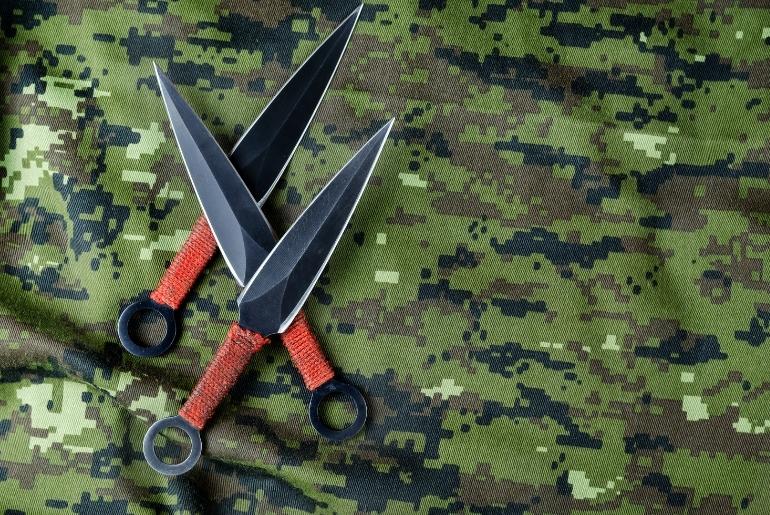
There are limitations on small throwing knives, small axes, and similar tools.
Exceptions: Possible approval with state or territory police involvement.
26. Unique Or Exotic Animals
It requires special consideration and authorization to import unusual or exotic animals like reptiles or amphibians.
Also Read: Good News! Children From Low Income Group Will Get Free Travel In KSRTC & Private Buses From Nov 1
Items That Require Declaration
1. Alcohol

You can declare and bring up to 2.25 litres of alcoholic drinks like vodka, rum, beer, wine, spirits, bourbon, and whisky duty-free if you’re 18 or older.
Penalties: If in doubt, always declare. Penalties may apply if goods are not declared.
2. Animal Horns, Teeth, And Bones
Most animal horns, teeth, or bones are allowed if they are clean and free from contamination with seed, soil, and animal or plant debris.
Penalties: If contamination is found on the items, they will be treated, exported, or destroyed at the importer’s expense. Items from endangered and protected animal species may require permits and will be seized if they are not compliant with CITES rules.
3. Beeswax
Beeswax products, including beeswax wraps, candles, and furniture polish, are allowed for personal use if they are clean and free from insects, seeds, or other contamination. It is important that the products are easily recognised.
Penalties: Beeswax products that do not meet these requirements will be exported or destroyed at the importer’s expense.
4. Cheese, Butter, And Other Dairy Products

Cheese, butter, and other dairy products are permitted for personal use if they are commercially prepared and packed, produced in an approved FMD-free country, and imported in an amount of up to 10 kilograms or 10 litres.
Penalties: Dairy products must be declared and checked on arrival. Products that do not meet import conditions will be exported or destroyed at the importer’s expense.
5. Coffee (Roasted, Kopi Luwak, Green)
Roasted coffee (excluding Kopi Luwak/Civet coffee) is permitted for personal use (up to 10 kilograms). Kopi Luwak/Civet coffee is allowed if the beans have been roasted; the product is commercially prepared, packed, and imported in an amount of up to 1 kilogram for personal consumption. Green coffee is also allowed but requires a phytosanitary certificate.
Penalties: Kopi Luwak/Civet coffee and green coffee must be declared and checked on arrival. Non-compliant products will be exported or destroyed at the importer’s expense.
6. Dried Herbs (Including Ginseng And Saffron) And Loose Herbal Teas

Commercially prepared and packed loose herbal teas and dried herbs are allowed if they only contain finely chopped ingredients of plant origin and weigh no more than 1 kilogram.
Penalties: Certain products, including ground herbs, may have specific conditions. Ensure compliance with rules to avoid fines.
7. Feathers (Including Down Jackets, Sleeping Bags, Pillows, And Quilts)
Feathers and items containing feathers are allowed for personal use, and you can bring up to 10 feather articles as a personal import.
Penalties: Feather articles that do not meet these requirements will be treated, exported, or destroyed at the importer’s expense.
8. Fish (Excluding Salmon Or Trout) For Human Consumption)

Canned bony fish and fish products can be imported for personal use (10 kilograms or less per passenger) if they meet specific conditions. Uncanned bony fish and fish products must meet consumer-ready or personal use conditions.
Penalties: These goods will be checked upon arrival to ensure compliance.
9. Fish (Salmonid Species, Including Salmon And Trout) For Human Consumption)
Canned salmon can be imported for personal use (10 kilograms or less per passenger) if it meets specific conditions. Uncanned salmon is permitted for personal use if it’s in consumer-ready form.
Penalties: These goods must meet the specified conditions and will be checked upon arrival.
10. Fishing, Hiking, And Sports Equipment
Fishing gear (excluding bait), camping, and sporting equipment are allowed in Australia. Ensure they are clean and dry when they arrive.
Penalties: Equipment used in freshwater must meet additional requirements, and non-compliant items will be treated, exported, or destroyed at the importer’s expense.
11. Fixed-Blade Knives
Single-edged fixed blades like kitchen knives and hunting or fishing knives are typically allowed in Australia.
Penalties: Ensure compliance with rules to avoid fines.
12. Fur, Leather Hides, Or Skin
Most leather goods, hides, furs, and skins that are fully tanned are allowed. Rawhide items for personal use are also permitted.
Penalties: Items must be free from contamination, and CITES rules may apply to some items.
13. General Goods
If you’re 18 or older, you can bring in $900 worth of general goods duty-free. If you’re under 18, the allowance is $450.
Penalties: Ensure you adhere to duty-free limits, as bringing in more than your allowance may require paying duty on all goods.
14. Honey Products

Honey products are permitted in most Australian states and territories. However, they must be checked by a biosecurity officer on arrival to confirm they are free from contamination.
Penalties: Items that do not meet these conditions will be exported or destroyed at the importer’s expense. Western Australia has specific quarantine requirements for honey products.
15. Hormones
Natural and manufactured human growth hormones can be brought in if you carry them in your accompanied baggage, have a letter from your doctor or a copy of your prescription (written in English), and don’t bring in more than 3 months’ supply.
Penalties: Penalties may apply if you don’t have a prescription, bring in more than the allowed supply, or are associated with an athlete. Athletes or those associated with athletes must have a permit issued by the Office of Drug Control.
16. Human Breast Mik
Breast milk is permitted if it is for the personal use of infants under the care of the person wishing to import the breast milk in quantities no greater than 10 litres or 10 kilograms. An importer declaration is required if the milk product is not accompanied by an infant.
Penalties: Ensure compliance with these conditions to avoid fines.
17. Human Remains
Human remains can pose a potential risk to human health. Before importing them into Australia, a number of conditions must be satisfied.
Penalties: Penalties may apply for non-compliance. Contact the authorities for specific requirements.
18. Individual Beverage Sachets
Dairy-based beverages with coffee, tea, or flavouring are permitted for personal use if they are commercially manufactured and packed, the commercial package has not been opened or broken, they are shelf-stable (do not require refrigeration), and they are for instant use (up to 10 kilograms).
Penalties: Ensure the products meet these conditions to avoid fines.
19. Infant Formula
Infant formula is allowed in Australia for personal use. However, it must be commercially prepared and packed and list the country of manufacture on the packaging.
Penalties: Ensure compliance with quantity limits based on the country of manufacture.
20. Juice And Soft Drinks
If they are prepared and packed commercially, fruit and vegetable juices and soft drinks are permitted entry into Australia.
Penalties: Ensure products meet these criteria to avoid issues.
21. Katanas And Samurai Swords
Once declared, Samurai and Katana swords of the traditional Japanese design, as well as replicas, are permitted entry into Australia.
Penalties: Ensure compliance with rules regarding these items.
22. Kava
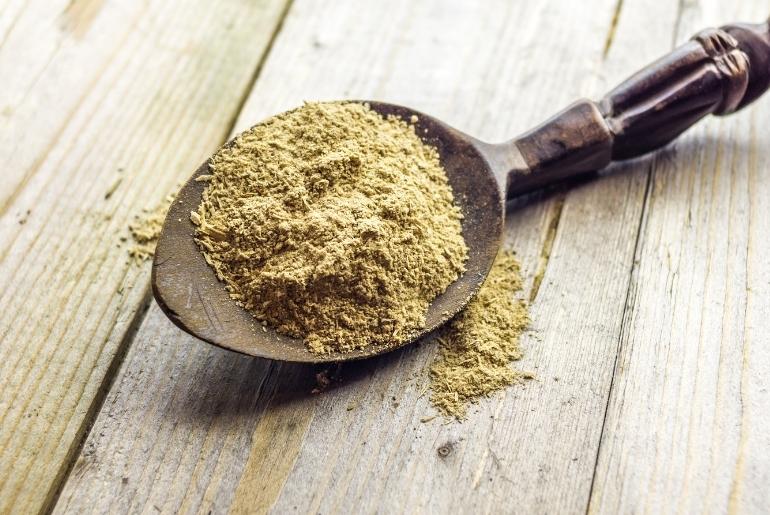
Kava is a plant traditionally used for therapeutic and recreational purposes by certain cultures. It is not allowed into Australia without a permit.
Penalties: Penalties may apply for non-compliance. Some kinds of kava may be prohibited.
23. Laser Pointers
Handheld laser pointers with a strength greater than 1mW (milliwatt) require prior written permission from the Minister for Home Affairs using a B710 Form—Application for Permission to Import Schedule 13 Weapons. Also, laser pointers with a strength of 1mW or less are allowed without permission.
Penalties: Penalties may apply if the required permission is not obtained before the goods arrive in Australia. This could include the loss of goods, prosecution, and large fines.
24. Lighters
The declaration of lighters, including disposable lighters, novelty lighters, and refillable lighters designed for lighting cigarettes, cigars, and pipes, is essential. Also, if you are 18 years of age or older, you may bring up to five lighters if arriving in Australia by plane or cruise ship. Aviation security rules may apply.
Penalties: Failure to comply with rules could result in the loss of goods, on-the-spot fines, prosecution, and large fines.
25. Meat Items

Meat products have strict import conditions that can change rapidly based on disease outbreaks. It’s essential to check the latest information and import conditions for meat products in the Department of Agriculture, Fisheries, and Forestry’s Biosecurity Import Conditions database (BICON). Canned (retorted) meat products are allowed if specific import conditions are met, including being manufactured in an approved FMD-free country.
Penalties: Items that do not meet import conditions will be either exported or destroyed at the importer’s expense.
26. Medicine For Personal Use
Most prescription medicines, even those containing controlled substances, can be brought into Australia without a permit if you are arriving as a passenger on a ship or aircraft. You should carry a letter or copy of your prescription from your doctor in English, and the quantity should not exceed three months’ supply.
Penalties: Penalties may apply if you do not follow these rules. Some substances may require written permission from the Office of Drug Control when travelling to Australia.
27. Mozzie Zappers (Bug Zappers)
You can only bring in mozzie zappers with a protective grid and a battery capacity of 6 volts or less. Zappers without a grid and a higher battery capacity are not allowed.
Penalties: Non-compliance may result in the loss of goods, prosecution, and significant fines.
28. Multi-Tool Knives
Multi-tool knives are generally allowed. However, if they have blades that open automatically, they cannot be taken in the country.
Examples: Pocket Knife, Swiss army knife, handyman tool
29. Noodles Or Pasta
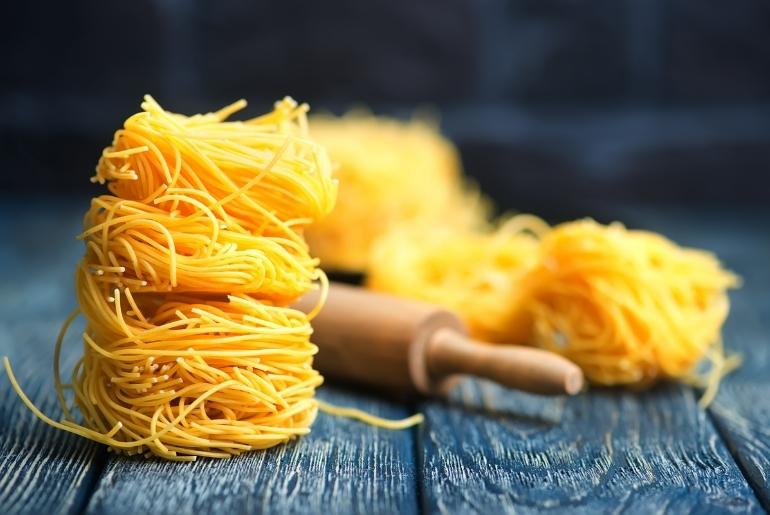
Noodles or pasta made from plant material only are allowed if they are commercially manufactured, packed, and contain only plant-based ingredients. Instant noodles or pasta are also permitted if they are for instant use and shelf-stable (do not require refrigeration).
Penalties: Items that do not meet these conditions may be checked and, if found non-compliant, will be either exported or destroyed at the importer’s expense.
Also Read: Perfect For You & Your Furry Friend, This Homestay In Uttarakhand Unlocks Restored Heritage Beauty
30. Nuts And Products Containing Nuts
Commercially prepared and packed nuts, including blanched, roasted, fried, or boiled nuts, shelled and tightly vacuum-sealed nuts, and nuts in small confectionery tins sealed under vacuum, are allowed.
Penalties: Nuts must be declared and may be checked upon arrival. Non-compliance with import conditions may result in items being exported or destroyed at the importer’s expense.
31. Pepper (Ground Or Whole)

Whole or ground pepper is allowed if it is commercially prepared, packed, and labelled with the full botanical name of a permitted species.
Penalties: Pepper must be declared and may be checked upon arrival. Items not meeting import conditions may be exported or destroyed at the importer’s expense.
32. Pet Food And Treats
All pet food, treats, and chews containing animal or plant-derived material require an import permit, government veterinary certificate, or manufacturer’s declaration. Also, there are no small-quantity or personal pet exemptions.
Penalties: Products without proper permits or documentation may be exported or destroyed.
33. Prawns For Human Consumption
Uncooked prawns and prawn products have specific import conditions, including the need for an import permit. Cooked prawns also require a specific health certificate.
Penalties: Failure to meet these conditions may result in the export or destruction of the items at the importer’s expense.
34. Rice
Raw (uncooked) rice is not permitted and will be destroyed. Other processed rice products (including roasted, parboiled, or puffed rice, microwave-ready rice pouches, rice flakes, and rice flour) must meet specific import conditions.
35. Sauces
Commercially prepared and packed sauces (including ketchup/catsup, soy, chilli, and peanut sauce) and curry pastes are allowed in Australia for personal use. The sauce or paste must be commercially cooked, shelf-stable (able to be kept at room temperature for at least 6 months), and enclosed in hermetically sealed containers.
36. Seashells, Sand, Rocks, Or Fossils

Most seashells, sand, rocks, and fossils are allowed if they are free from insects, soil, and contamination. Some may require a permit if they contain CITES-listed species or are of cultural heritage significance.
Penalties: Items not meeting these conditions will be treated, exported, or destroyed at the importer’s expense.
37. Sedatives
Sedatives, including prescription medicines from the benzodiazepines group, can be brought in if carried in your accompanied baggage. Also, it must be accompanied by a doctor’s letter or prescription in English, and not exceeding three months’ supply.
Penalties: Penalties may apply if these rules are not followed.
38. Seeds
Seeds must be a permitted species, accompanied by a phytosanitary certificate, and free of live insects, soil, and contamination. For some seeds, import permits might be necessary.
Penalties: Seeds not meeting import requirements may be exported or destroyed at the importer’s expense.
39. Slingshots
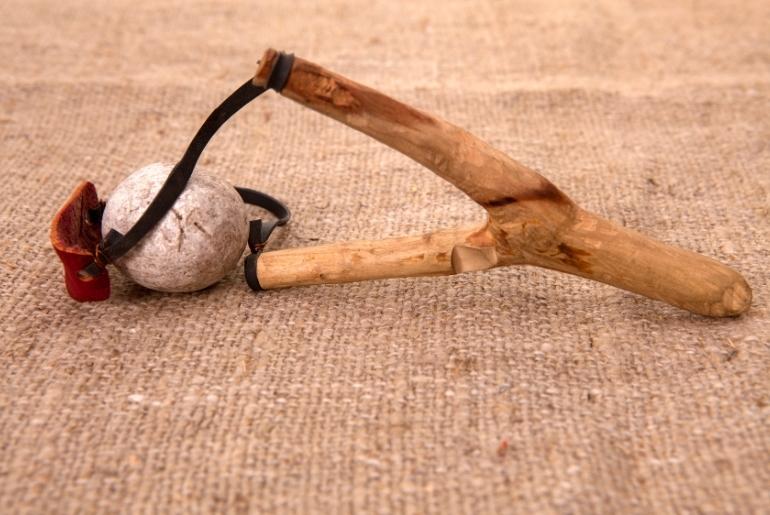
Slingshots may be prohibited or subject to import controls. It is advisable to check the latest import rules with the Department of Home Affairs before bringing them to Australia.
Penalties: Lose your goods; prosecution and large fines may apply
40. Spices
Most commercially prepared and packed spices are allowed, however, they must labelled with the full botanical name of the species.
Penalties: Spices must be declared and may be checked upon arrival. Non-compliance may result in items being exported or destroyed at the importer’s expense.
41. Steroids
Anabolic and androgenic substances, also known as steroids, can be brought into Australia if you carry them in your accompanied baggage, have a letter from your doctor or a copy of your prescription (written in English), and don’t bring in more than 3 months’ supply. Athletes or anyone associated with an athlete must have a permit.
Penalties: Lose your goods; an on-the-spot fine; prosecution; and large fines may apply.
42. Swords And Bayonets
Single-edged and double-edged swords, as well as bayonets designed to be fitted to a firearm, are generally allowed. You can bring in medieval-type swords if they are single or double-edged, unless they are daggers. You can only bring in slingshots with an arm brace if you have state or territory police approval on a B709B form. Also, you may be required to get a state or territory licence.
43. Tea Bags
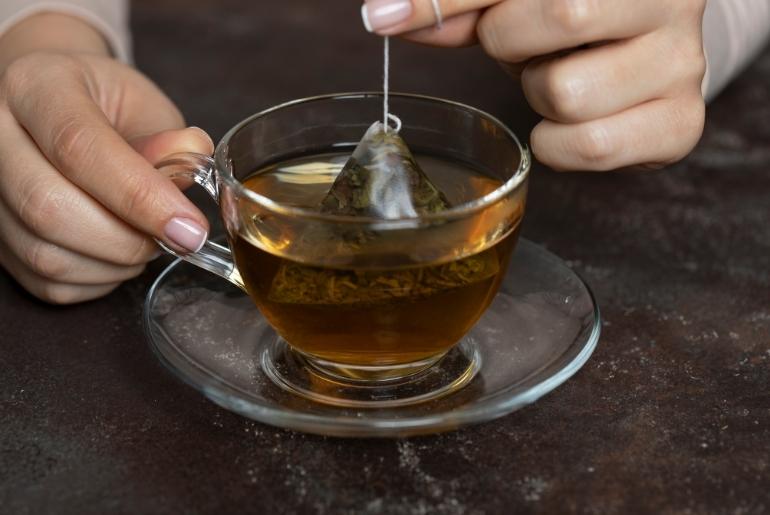
After declaration, you may use tea bags that have been commercially.
Penalties: Non-compliance with import conditions may result in items being exported. They can also be destroyed at the importer’s expense.
44. Tobacco Products
Tobacco products are subject to strict import rules. There are also limits on the number of tobacco products that can be brought into Australia duty-free and age rules apply. All tobacco products must be declared.
Penalties: Failure to declare tobacco products may result in fines, and the products may be seized.
45. Vitamins, Supplements, And Therapeutics For Human Use
Vitamins, supplements, and therapeutics for human use are allowed into Australia if the product is for human use, brought to Australia by the person who intends to use it, commercially prepared and in a quantity of no more than three months’ supply.
46. Wheat
Wheat is not allowed unless it is commercially ground or milled. Check the exclusions listed on the Department of Agriculture, Fisheries, and Forestry’s website. Wheat that does not meet the conditions will be destroyed.
47. Whole Eggs For Human Consumption

Whole eggs are not allowed in Australia unless accompanied by an import permit.
48. Wooden Items
If they are free from bark, insects, signs of insect damage, or any other issue, most wooden items are allowed into Australia. However, they must be declared on arrival and checked.
Staying informed about Australia’s import rules to ensure a smooth journey and avoid any issues at the border.
Cover Image Courtesy: Canva
For more such snackable content, interesting discoveries and latest updates on food, travel and experiences in your city, download the Curly Tales App. Download HERE.
Good news! We are on WhatsApp! Subscribe to Curly Tales WhatsApp Channel to stay up-to-date with exclusive content and BTS. Join HERE.




